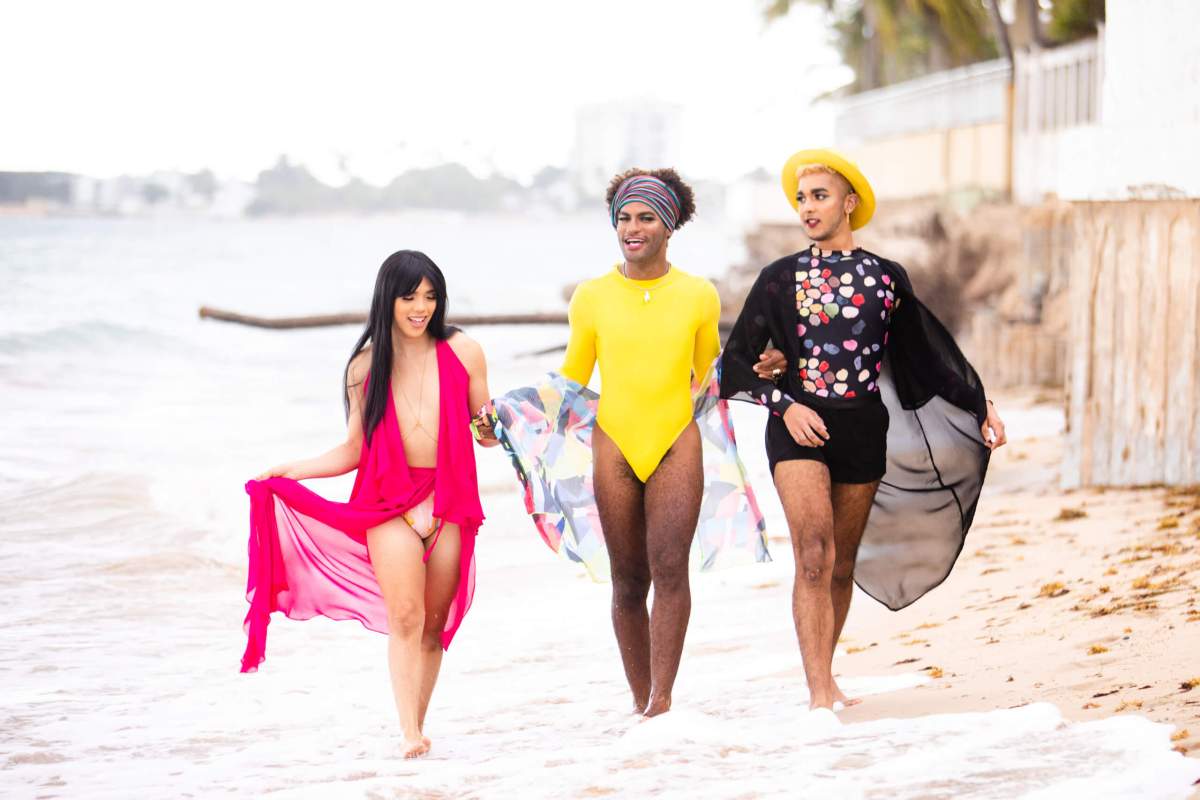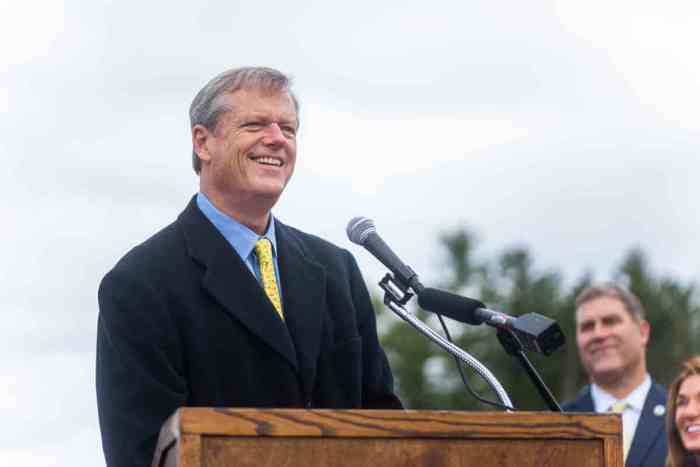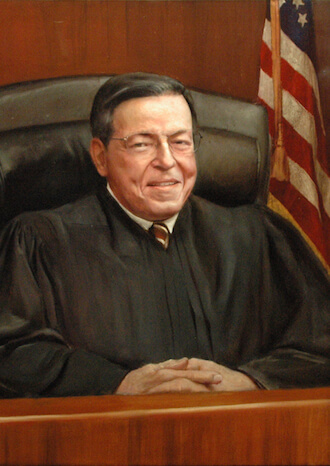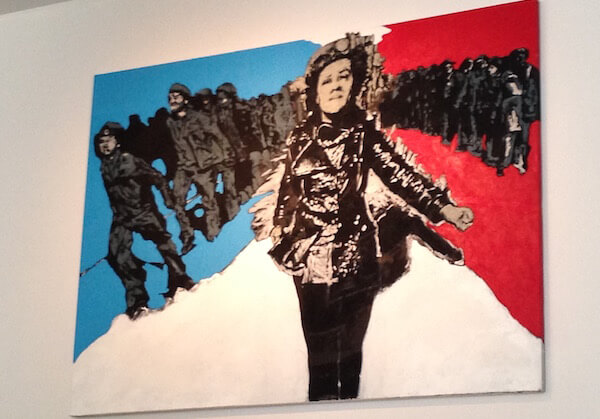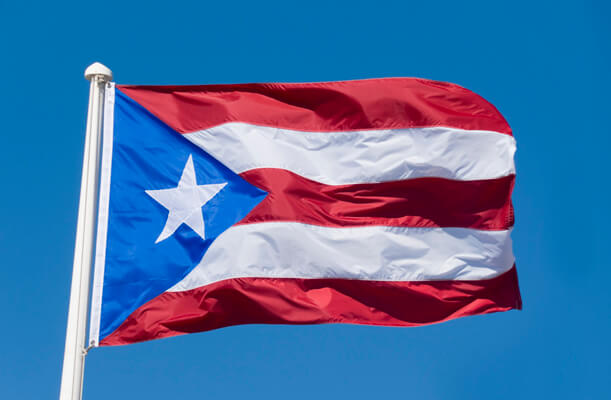Puerto Rico wants LGBTQ travelers, especially transgender and non-binary individuals, to visit the Caribbean Island and “Live Out.”
“The destination has always been an LGBTQ destination,” Discover Puerto Rico’s out gay marketing and special events manager, José E. Arana Rodriguez, told Gay City News. The island, Rodriguez noted, simply did not specifically market to LGBTQ travelers.
Then in 2018 — the same year the destination management company launched — gay digital travel guide GayCities.com named Puerto Rico “Destination of the Year.”
“It was a natural way for us to promote the destination to the specific market,” Arana Rodriguez told Gay City News. “We feel very close to [the LGBTQ community] not only as a market that has money to spend in the destination, but also [because of] the importance of the LGBTQ [community] in Puerto Rican culture.”
Discover Puerto Rico announced its new LGBTQ travel campaign at the International Gay and Lesbian Travel conference in Atlanta, Georgia in September.
The new campaign in the United States territory, which is the birthplace of out gay pop sensation Ricky Martin and Jennifer Lopez, among other celebrities, is more than just rainbows, fun in the sun, and good times at America’s popular Caribbean destination. Puerto Rico welcomed 553,554 visitors in July and 512,796 visitors in June at the peak of last summer’s travel, according to the tourism bureau.
It could also be a force for change for the island’s LGBTQ community if the destination’s promotional arm has its way.
In the coming months, Discover Puerto Rico will officially launch “Live Out” to welcome LGBTQ travelers.
Currently, the destination’s LGBTQ travel page features articles about queer businesses and locals as well as ideas of what to do and where to go on the island to connect with LGBTQ locals and have a full queer experience. The businesses are also promoted to general travelers, Arana Rodriguez noted.
In October, for example, the Condado Ocean Club launched its “Lush” campaign, a vacation package exclusively for LGBTQ travelers. Albert Charbonneau, the 59-year-old out gay general manager at Condado Ocean Club, believes the island should be “more out there” given its reputation as a top LGBTQ destination in the Caribbean.
“We are the capital of the gay island compared to any other islands” and it is “a beautiful place to come,” he said.
Arana Rodriguez agreed, stating, “We have to be in the forefront of marketing in [promoting] the destination and welcoming the future visitors of the world.” Arana Rodriguez pointed to studies showing that the future of travel is more gender and sexually diverse thanks to Millennials and Gen Z.
“We want to position Puerto Rico as an LGBTQ destination that will welcome everyone,” he continued, adding that Discover Puerto Rico is committed to the island’s LGBTQ community and the travel campaign for the long haul.
Even more so, Arana Rodriguez wants LGBTQ visitors to go home with a “great experience” that leaves them wanting to return to Puerto Rico.
Attracting LGBTQ travelers to Puerto Rico, however, can come with challenges. The island has been battered in recent years, not only by hurricanes, earthquakes, the global pandemic, and an insensitive government, but also by an epidemic of violence against the island’s LGBTQ citizens — especially transgender people.
In 2020, six known transgender people were murdered on the island. They were among the total 44 transgender or gender non-conforming people killed in the US last year, according to the Human Rights Campaign.
The tragedies were possibly a tipping point for Puerto Rico’s LGBTQ community, which reeled from heightened violence fueled by anti-LGBTQ attitudes and rhetoric spewed by former Puerto Rican Governor Ricardo Rosselló. Rosselló stepped down after weeks of intense demonstrations calling for his resignation after Puerto Rico’s Center for Investigative Journalism exposed homophobic and sexist chats between him and his top aides.
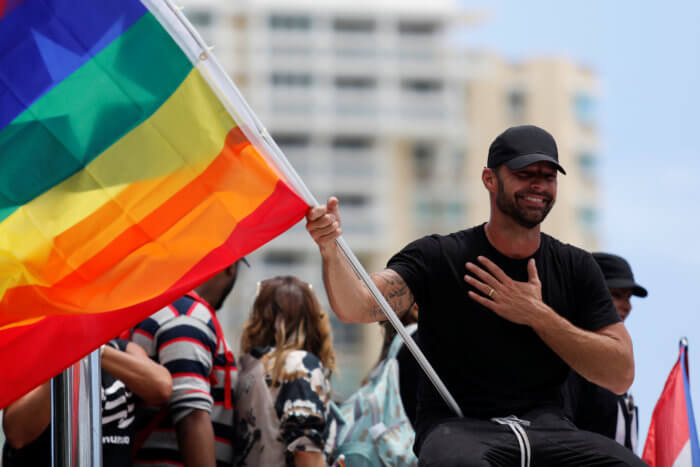
Despite Rosselló’s resignation, homophobic and sexist beliefs held by some of Puerto Rico’s government leaders and Puerto Ricans remain, even though the island ranks 20th out of 50 states and territories for LGBTQ rights regarding progress toward LGBTQ equality, according to the LGBT Map, which monitors and ranks the progress of LGBTQ rights in the US.
Puerto Rican human rights activist Pedro Julio Serrano expressed mixed feelings about the campaign.
“It’s a great campaign. I would love for Puerto Rico to not only welcome everyone and our LGBTQ+ people and gender variant and non-binary people, but we need to make it safe for people living here,” the 47-year-old out gay leader said about Puerto Rico’s anti-LGBTQ problems, from elected officials spewing anti-gay rhetoric to the epidemic of violence against the community.
Violence against LGBTQ Puerto Ricans, especially transgender people, got so bad on the island, Puerto Rico’s new governor, Pedro Pierluisi, signed an executive order declaring a state of emergency and set up a task force to tackle the issue at the beginning of the year. Pierluisi added violence against LGBTQ people, especially against transgender people, after the island’s LGBTQ activists urged him to include the community in the executive order.
“If I’m a traveler and I see that Puerto Rico is the epicenter of anti-trans violence, why would I want to come there if the government isn’t doing anything to keep me safe?” Serrano asked.
Discover Puerto Rico condemns the violence against the LGBTQ community.
“We want to welcome all of our visitors to our destination so that they can feel safe, and they can enjoy all that Puerto Rico has to offer our visitors,” Arana Rodriguez, told Gay City News.
In the face of formidable forces pushing against Puerto Rico’s LGBTQ community, progress has been made with help from US laws and a strong queer activist community.
As a US territory, LGBTQ Puerto Ricans enjoy equal marriage rights, protection against anti-discrimination in employment, and other recent gains made at the federal level. Locally, LGBTQ activists have made inroads within the last decade, achieving key wins, such as transgender individuals being able to change their gender marker on their birth certificates.
Still, Serrano noted that “even though we are pretty much advanced … it has been very hostile,” he said, stating much of the progress has been made with “very little support” locally on the island during the last three decades. Moving forward, he hopes to see action from both Discover Puerto Rico’s campaign and Pierluisi’s task force to push back against conservative ideology that can be hostile to the LGBTQ community.
In 2019, Puerto Rico’s police force began receiving LGBTQ cultural sensitivity training, Yvette Rivera, who oversees the unit of crimes against women and domestic violence, said, according to CBS News. However, there has been some resistance within the ranks.
Before the island took a wrong turn on LGBTQ rights and started correcting itself, Discover Puerto Rico recognized the island’s potential as a vacation destination for queer travelers.
To help get the island back on the right track, Discover Puerto Rico partnered with gay-owned diversity and inclusion company, HospitableMe, along with Discover Atlanta and Hyatt.
The company is helping Puerto Rico’s tourism leader develop its LGBTQ cultural sensitivity training program for its hospitality and tourism partners, Arana Rodriguez said.
“We are committed to fostering a world of understanding and inclusion, along with a culture of opportunity for all — a commitment that goes far beyond words, and is supported by real, meaningful action,” a Hyatt spokesperson wrote in an email statement to Gay City News.
Hyatt’s representative referred to a beta program designed to create a pathway to hospitality employment for LGBTQ individuals, especially for underrepresented gender non-conforming and transgender people; educate travel professionals and companies about LGBTQ cultural sensitivity and inclusivity; and work with local LGBTQ-owned businesses.
Boutique hotels, tour guides, restaurants, and other tourism businesses around the island have already undergone training to welcome LGBTQ visitors during the soft launch of the program, Arana Rodriguez said.
“In the end, they are all human. They all just want to have a great experience,” Arana Rodriguez said trainers told the businesses, “and locally as Puerto Ricans we always want to welcome our visitors, we always want to give of our culture.”
“It made me really proud and very hopeful that they are investing so much into LGBT tourism here in Puerto Rico,” said Joey Colon, founder, president, and managing director of LGBT Chamber of Commerce in Puerto Rico (La Cámara de Comercio LGBTTQ de Puerto Rico).
Colon, 51, hopes the partnership and programs spearheaded by Discover Puerto Rico will help members of the island’s LGBTQ Chamber of Commerce, which has a member base that disproportionately consists of hospitality and tourism businesses.
The chamber grants 85 percent of its $450,000 annual budget to help Puerto Rico’s LGBTQ businesses, especially during the pandemic, Colon said.
IGLTA, where Discover Puerto Rico announced its LGBTQI tourism campaign earlier this fall, expressed solid support for the campaign and the Caribbean island’s success.
“LGBTQ+ travelers often face added challenges — even more so when they are transgender or non-binary. Education and visibility are key to making changes,” said IGLTA President/CEO John Tanzella. “Discover Puerto Rico has been incredibly committed to educating their industry partners on ways to provide safe, respectful service, and with their new campaign, Puerto Rico also is promoting much-needed visibility for gender non-conforming travelers.”
If successful, Puerto Rico will be the second destination following Fort Lauderdale to take on a campaign for gender variant and transgender travelers.
Serrano expressed hope that the campaign will hire and train LGBTQ Puerto Rican activists to conduct LGBTQ trainings for businesses — which he said would be a sign that Puerto Rico isn’t simply going after the pink dollar.
“We still have a long way to achieve full equality in Puerto Rico and sometimes those campaigns feel a little cosmetic,” he said. “We need to be safe in order for other people to feel safe coming to Puerto Rico.”
Heading into the new year, another challenge facing Puerto Rico’s tourism industry is the ongoing COVID-19 pandemic, though Arana Rodriguez stressed that the island has a stronger vaccination rate than some other states and territories.
The local vaccination rate is well above the national average, with 88 percent of Puerto Ricans having received at least one dose and 80 percent fully vaccinated, according to the tourism bureau.
COVID-19 transmission and death rates dropped to a low in recent months, but like many states, started creeping upward in mid-November as colder weather approached, according to Our World in Data.
Arana Rodriguez added that while American’s don’t need a passport because Puerto Rico is a part of the US, the island is requiring proof of vaccination, or a negative COVID-19 test 72 hours prior to visiting. Travelers can use an app to verify their COVID-19 status.
The island is also enforcing mask mandates indoors and does not allow public gatherings of more than 50 people. Violators face a $300 fine.
To plan your trip to Puerto Rico, visit www.discoverpuertorico.com/things-to-do/lgbtq-travel.

